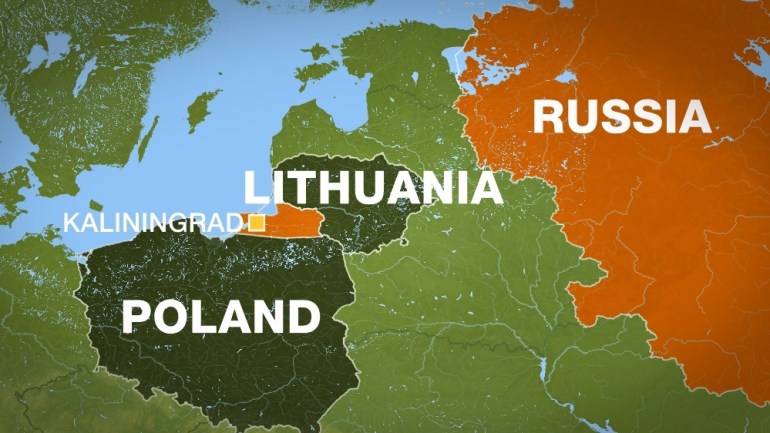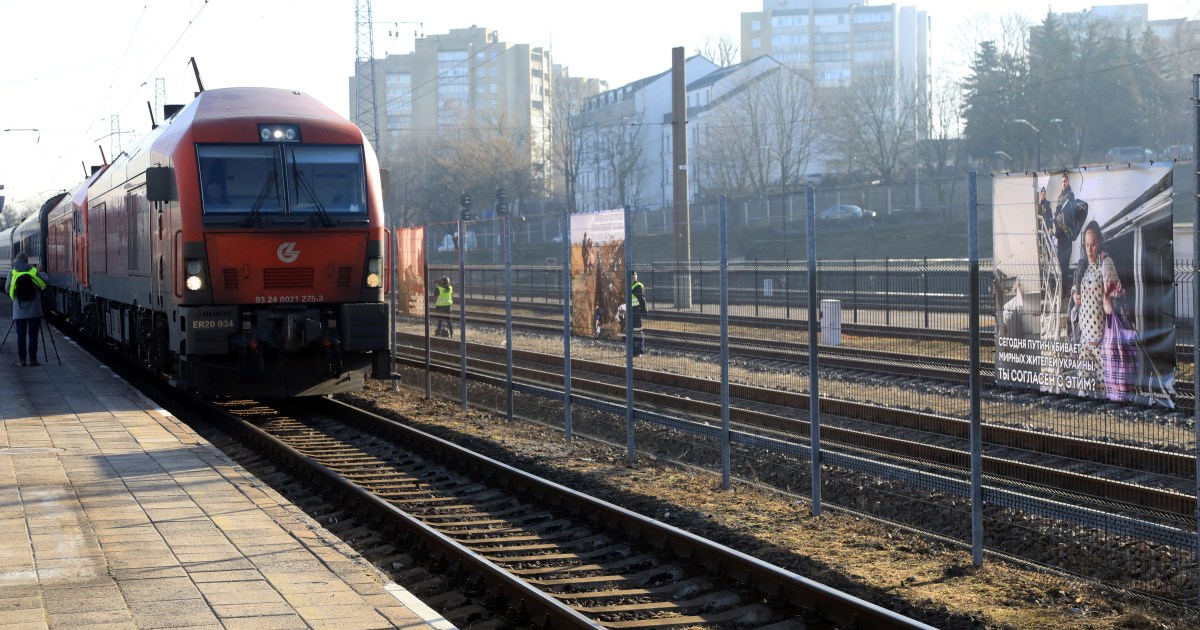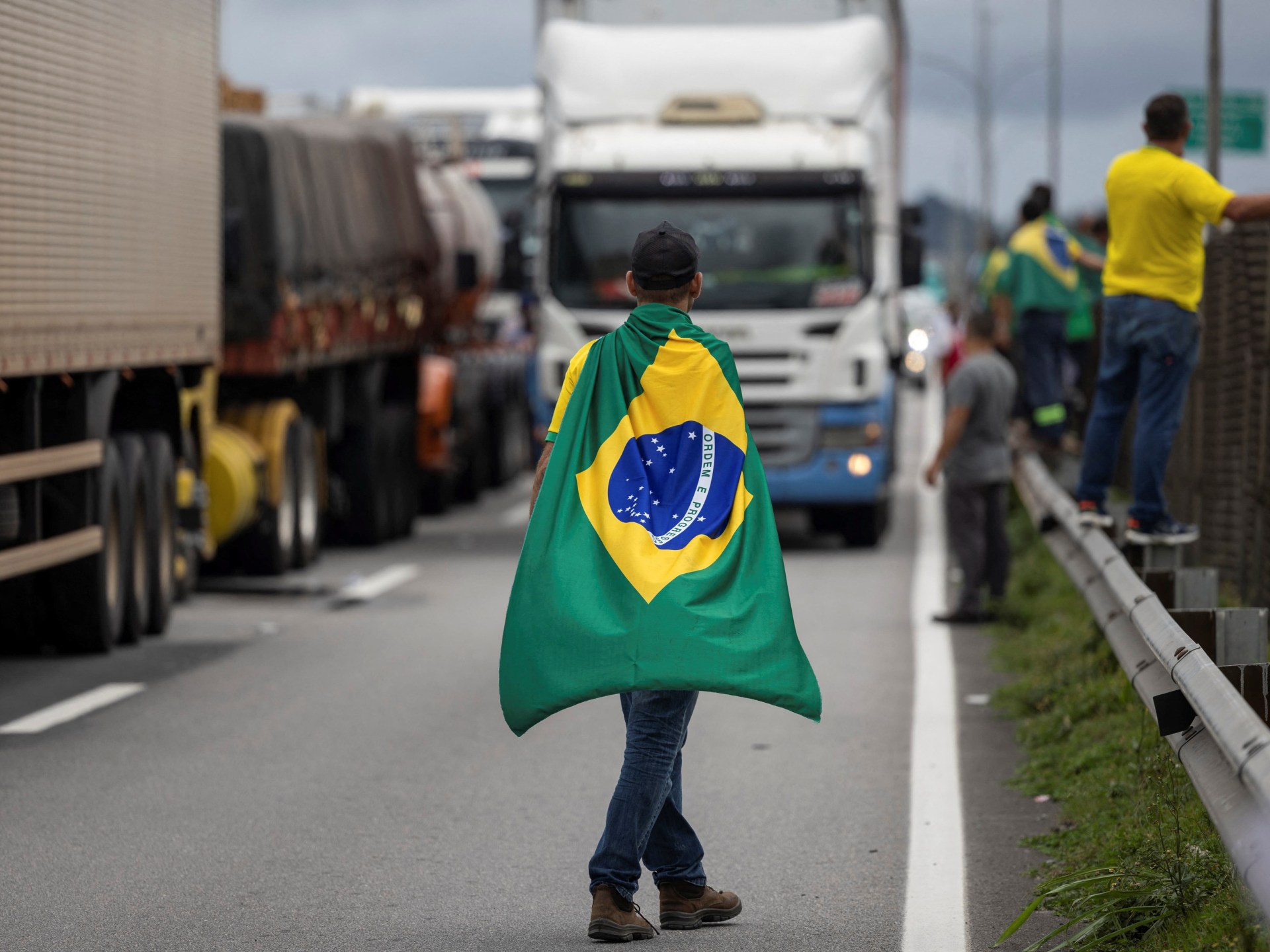Lithuania enforces EU sanctions on goods to Russia’s Kaliningrad
Transit ban on sanctioned goods could increase already high levels of tension between Russia and NATO following Moscow’s invasion of Ukraine.
Lithuanian authorities have banned the transit through their territory of goods to the Russian enclave of Kaliningrad that are subject to European Union sanctions, according to the national rail service.
The enclave – home to the Russian Baltic Fleet and a deployment location for Moscow’s nuclear-capable Iskander missiles – is sandwiched on the Baltic coast between Lithuania and Poland, both NATO members, and has no land border with Russia.
The transit ban could increase already high levels of tension between Russia and NATO following Moscow’s invasion of Ukraine in late February.
The transit ban took effect on Saturday, according to the cargo arm of Lithuania’s state rail service in a letter to clients. Following “clarification” from the European Commission on the mechanism for applying the sanctions, the transit ban was implemented, according to the letter.
A spokesman for the Lithuanian rail service confirmed the contents of the letter but declined to comment further, according to Reuters news agency.

News of the impending ban came on Friday in a video message posted by Kaliningrad’s governor Anton Alikhanov.
Alikhanov said the ban would cover between 40 and 50 percent of the items that Kaliningrad imports from and exports to Russia through Lithuania as the EU sanctions list notably includes coal, metals, construction materials and advanced technology.
“We consider this to be a most serious violation … of the right to free transit into and out of Kaliningrad region,” he said in an online video posting, adding that authorities would press to have the measures lifted.
He said that if the region were not able to have the measures lifted quickly, it would start discussing the need for more ships to carry goods to Russia.
Urging citizens not to resort to panic buying, Alikhanov said two vessels were already ferrying goods between Kaliningrad and Saint Petersburg, and seven more would be in service by the end of the year.
“Our ferries will handle all the cargo”, he said on Saturday.
In February, Lithuania closed its airspace to flights from Russia to Kaliningrad, forcing commercial carriers to take a longer route out over the Baltic Sea.
Lithuania’s foreign ministry did not reply to a request from Reuters for comment on the new measure, though Lithuanian deputy foreign minister Mantas Adomenas told a public broadcaster that the ministry was waiting for “clarification from the European Commission on applying European sanctions to Kaliningrad cargo transit”.




